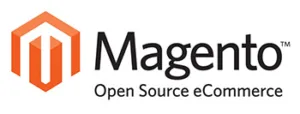I’m working on a project and it is my first time using Go.
The project queries a number of APIs and for the most part I have had no trouble getting this working.
Coming from a PHP background, creating Go type definitions for my JSON responses is a little different.
I am stuck on one API, a Magento API, that returns a JSON response like so:
{
"66937": {
"entity_id": "66937",
"website_id": "1",
"email": "[email protected]",
"group_id": "1",
"created_at": "2017-08-11 02:09:18",
"disable_auto_group_change": "0",
"firstname": "Joe",
"lastname": "Bloggs",
"created_in": "New Zealand Store View"
},
"66938": {
"entity_id": "66938",
"website_id": "1",
"email": "[email protected]",
"group_id": "1",
"created_at": "2017-08-11 02:16:41",
"disable_auto_group_change": "0",
"firstname": "Jane",
"lastname": "Doe",
"created_in": "New Zealand Store View"
}
}
I have been using a tool, JSON-to-Go, to help me create the struct types, however it doesn’t look quite right for this style of response:
type AutoGenerated struct {
Num0 struct {
EntityID string `json:"entity_id"`
WebsiteID string `json:"website_id"`
Email string `json:"email"`
GroupID string `json:"group_id"`
CreatedAt string `json:"created_at"`
DisableAutoGroupChange string `json:"disable_auto_group_change"`
Firstname string `json:"firstname"`
Lastname string `json:"lastname"`
CreatedIn string `json:"created_in"`
} `json:"0"`
Num1 struct {
EntityID string `json:"entity_id"`
WebsiteID string `json:"website_id"`
Email string `json:"email"`
GroupID string `json:"group_id"`
CreatedAt string `json:"created_at"`
DisableAutoGroupChange string `json:"disable_auto_group_change"`
Firstname string `json:"firstname"`
Lastname string `json:"lastname"`
CreatedIn string `json:"created_in"`
} `json:"1"`
}
All I am interested in is the inner JSON – the stuff to actually do with the customer. I am looping over this to extract some information.
How do I create the required struct to read from this?
I have looked at any number of documents or articles but they tend to use more simple JSON responses as examples.

 Question posted in
Question posted in 

3
Answers
For your JSON structure following might suit well.
Play Link: https://play.golang.org/p/ygXsdYALCb
Create a
structcalledInfoor name you prefer also customize your field names as you like.And create
mapofInfostruct and the unmarshal it.EDIT:
As asked in the comment, adding
forexample:Well, first, I don’t like the auto-generated struct definitions there. I would change that to look like this
You may want to create a wrapper type
This should work with your json that you’ve provided. To put this together
Both @Xibz and @jeevatkm provided great solutions. However, in some cases, not all JSON structures can be unmarshalled into Go structures. You may have to define your own decoding functions.
You can also try gorilla’s schema package if you have to define your own decoding function for particular data type or structures.
https://github.com/gorilla/schema